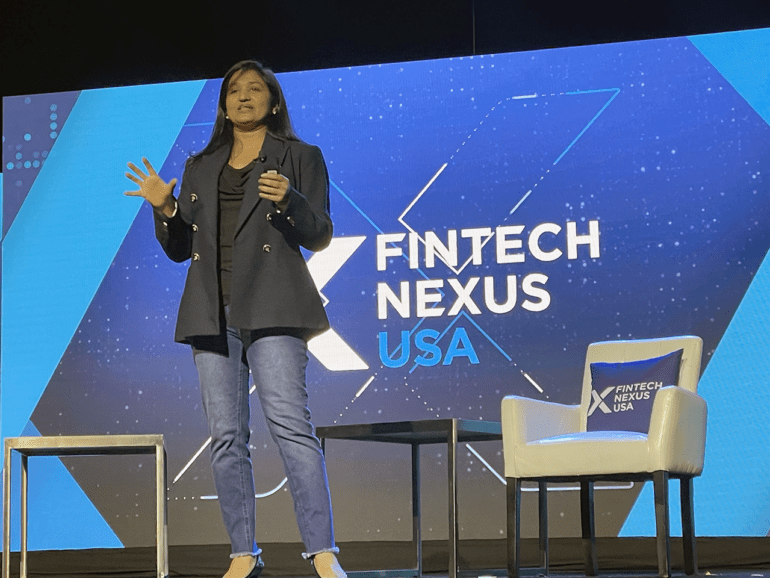NEW YORK, N.Y. — A recent conversation with her seven-year-old nephew reminded Ranjita Iyer about trust, one of the foundational elements of the financial system.
Iyer, Mastercard’s SVP of Cyber & Intelligence Solutions, delivered a keynote speech at Fintech Nexus USA 2023 in New York City. She began by considering the world her nephew is growing up in.
It’s app-based. He learns from them, plays on them, and will soon buy on them. Later on, he’ll manage his finances on them too.
So how do you trust the folks on those apps? For her nephew, it’s simple; he trusts those he knows and who he believes won’t hurt him.
That interaction highlights the importance of trust and identity as foundational elements of the financial ecosystem, Iyer said. With people hungry to interact in a digital economy, they, along with service providers, must convincingly prove their identities.
Iyer said that’s hard in a digital world, with its explosion of data and nearly three quintillion bytes (10 to the 18th power) of data. By 2025, prepare for 18 trillion digital transactions from 27 billion devices.
Challenged to prove digital IDs
Iyer said the industry is challenged to develop ways to prove digital identities, but the payoff is worth it. Because you know the customer, personalized service becomes easier. providers can better help the underserved.
For Mastercard, that means connecting merchants with customers. A decade ago, the company was great at protecting transactions, but its mandate has evolved.
“By the time you’re protecting the transaction and the payments, it’s almost too late,” Iyer said. “You need to be able to protect the ecosystem up front. “
Meet that challenge, and fintechs fill a customer need. And they generate business. plenty of business. Fintech will become a trillion-dollar marketplace due to figures such as 71% of American consumers wanting open banking transactions and 78% desiring mobile banking applications. Only 29. Only 29% want to bank in person.

Iyer said the number of open banking customers is expected to increase eightfold. Fintechs will be at the center of that growth, with payment flows via open banking expected to surge by 3,000%.
“Consumers will have even more optionality and will be able to do even more creative things with this technology,” Iyer said. “Consumers can directly benefit from sharing even more of their data to enhance how they manage their wealth, their retirement accounts, bank, and capital through this burgeoning ecosystem.”
Iyer said open banking will deliver more optionality and creativity. It will improve underwriting models, help with inclusion and reduce risk. More small businesses will access capital. Mastercard’s efforts include partnering with fintechs in 172 countries to deliver new and personalized solutions for the underbanked. In the USA, that means helping the 25% who are underbanked and the 21 million without access to the traditional ID system.
None of it is possible without trust, and that is harder to ensure as data breaches become more common. Data is readily available, and there are kits to help people commit fraud. It’s never been easier.
Iyer announced Mastercard’s new enhanced bank account opening solution. It helps fintechs and financial services institutions onboard and verifies customers in real time.
“Enabling trust on both sides of an interaction can help a business reach more consumers, increase access to more financial services, and enable organizations to grow and thrive,” Iyer concluded.


